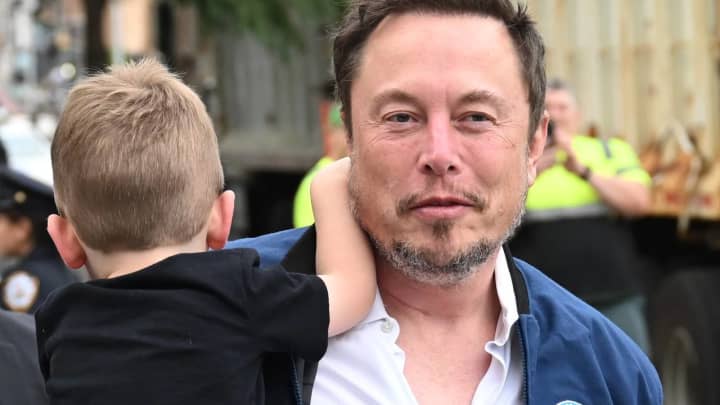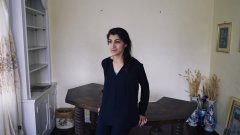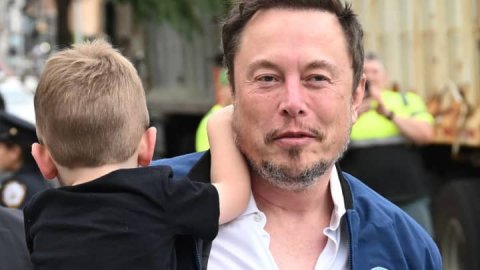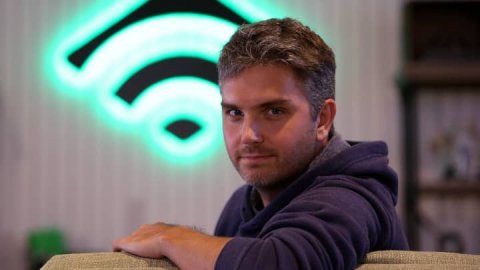
Turkish President Recep Tayyip Erdogan invited to build his next factory in Turkey, the country's state media reported Monday.
Erdogan on Sunday met with the and SpaceX CEO in New York while visiting the U.S. for the United Nations General Assembly. The two met at the Turkish House in Manhattan, a skyscraper located near the UN.
"Recalling that with the Turkish electric car Togg hitting the roads in Türkiye, Tesla entered the Turkish market, Erdogan called on Tesla to establish its seventh factory in Türkiye," Turkish state news agency Anadolu reported, citing the country's communications directorate.
Erdogan also offered collaboration opportunities with Musk's aerospace company SpaceX and Turkey's space program, and invited the billionaire inventor to Teknofest, Turkey's largest aviation, aerospace and technology festival taking place between late September and the end of October this year.
Musk replied that a number of Turkish suppliers are already working with Tesla and that Turkey "is among the most important candidates" for his next factory, Anadolu wrote. CNBC has contacted the Turkish communications directorate for the full statement.
Tesla has six factories and is currently building a seventh in Mexico. In May, Musk said he would most likely select a destination for a new factory by year-end. He is reported to have already about opening a manufacturing facility for low-cost electric vehicles in India.
Tesla did not immediately respond to a CNBC request for comment. The is up 123% year to date.
Erdogan and Musk also reportedly discussed cooperation on artificial intelligence and Starlink, SpaceX's satellite internet service. Musk reportedly expressed interest in obtaining the necessary licensing from Turkey's government to operate Starlink in the country of 85 million.
Turkey has positioned itself as a major manufacturing hub at the crossroads of Europe and Asia in recent decades.
Between 2012 and 2022, manufacturing as a share of Turkey's GDP grew to about 19%, and the country aims to increase that to 21% by the end of this year as part of its 2023 Industry and Technology Strategy, according to U.S. Department of Commerce. Its strategy also includes state support for entrepreneurs, strengthened intellectual property laws, and major investment in STEM education and technology startups.
The department reports that of Turkey's manufacturing exports, 36% are medium-tech products and 3% are high-tech products. of its medium-tech exported products to 44% and its high-tech products to 6% by the end of 2023.
Turkey has in recent years In 2022, – a figure larger than some European countries' annual defense budgets. The country's government aims to bring that figure to $6 billion in 2023.
Revenue for the country's defense industry as a whole last year was , according to Turkey's Presidency of Defense Industries, and it is home to some 2,000 companies in the sector. Its locally made after its use by Ukrainian forces against invading Russian troops.
Turkish media reports that Erdogan mentioned the drone's success during his conversation with Musk, to which Musk responded that he was aware of the
For the manufacturing sector as a whole, Turkey "is expected to invest between $1 to $1.5 billion, annually, to integrate industry 4.0 solutions (referring to the fourth industrial revolution and the digital transformation across manufacturing industries) into the manufacturing process," according to the U.S. Commerce Department.
Turkey's economy however has been on a for the past several years as shrinking foreign currency reserves and a persistent refusal by Erdogan to raise interest rates amid rapid growth resulted in a severely weakened currency and The country's central bank , gradually hiking interest rates, though the currency's value has so far not improved.
Turkey's currency, the , is down 30% against the dollar year to date, and has lost 78% of its value against the greenback in the last five years. Erdogan's push for more foreign investment in the country — from conversations with CEOs like Musk to trade and investment deals with wealthy Gulf Arab states — appear to be part of an effort to resuscitate the country's finances.




